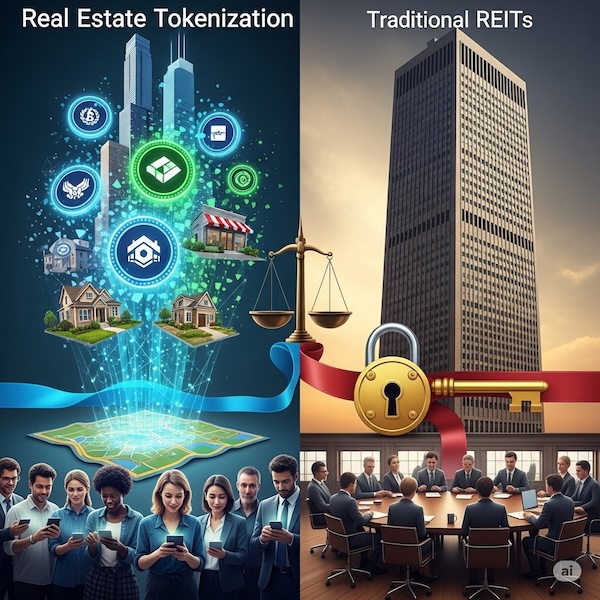The intersection of blockchain technology and real estate investment has created unprecedented opportunities for investors, but it has also introduced complex tax considerations that require careful planning and strategy. Understanding how to optimize tax outcomes while maintaining compliance is crucial for maximizing the benefits of tokenized real estate investments.
The Tax Landscape for Tokenized Real Estate
Tokenized real estate investments exist at the intersection of traditional real estate taxation and emerging digital asset regulations. This unique position creates both opportunities and challenges for tax optimization:
- Hybrid Classification: Tokens may be treated as securities, real estate interests, or digital assets depending on structure
- Evolving Regulations: Tax authorities worldwide are still developing specific guidance for tokenized assets
- Multiple Jurisdictions: Cross-border investments may trigger tax obligations in multiple countries
- Technology Complexity: Blockchain transactions require specialized record-keeping and reporting
Understanding Token Classification for Tax Purposes
Security Token Treatment
Most tokenized real estate offerings are structured as security tokens, which generally receive favorable tax treatment:
- Capital Gains Treatment: Appreciation in token value typically qualifies for capital gains rates
- Dividend Income: Distributions from underlying real estate are usually treated as dividend income
- Pass-Through Potential: Some structures allow for pass-through of real estate tax benefits
- Like-Kind Exchanges: Potential for 1031 exchanges in certain structures
Strategic Tax Planning for Individual Investors
Timing Strategies
Careful timing of transactions can significantly impact tax outcomes:
Tax-Loss Harvesting
- Offset Gains: Realize losses to offset gains from other investments
- Wash Sale Rules: Be aware of wash sale rules that may apply to substantially identical tokens
- Carry Forward: Unused losses can be carried forward to future tax years
Long-Term Capital Gains
- Holding Period: Hold tokens for more than one year to qualify for preferential rates
- Rate Differential: Long-term rates can be 0%, 15%, or 20% vs. ordinary income rates up to 37%
- NIIT Considerations: High-income investors may face additional 3.8% net investment income tax
Advanced Tax Strategies
Charitable Giving Strategies
Tokenized real estate can be used effectively in charitable giving strategies:
- Charitable Remainder Trusts: Donate appreciated tokens to a CRT to receive income while avoiding capital gains tax
- Donor-Advised Funds: Contribute tokens to a donor-advised fund for immediate tax deduction
- Direct Charitable Gifts: Donate appreciated tokens directly to charity to avoid capital gains tax
Estate Planning Considerations
Tokenized real estate presents unique opportunities for estate planning:
- Valuation Discounts: Fractional interests may qualify for valuation discounts
- Grantor Trusts: Use trusts to transfer appreciation while retaining income tax liability
- Generation-Skipping Strategies: Structure transfers to take advantage of GST exemptions
International Tax Considerations
Cross-Border Investments
Tokenized real estate investments often involve cross-border elements:
- Source Rules: Determine income source based on underlying real estate location
- Treaty Benefits: Utilize tax treaties to reduce withholding taxes
- Foreign Tax Credits: Claim credits for foreign taxes paid
- PFIC Rules: Be aware of passive foreign investment company rules
Record Keeping and Compliance
Documentation Requirements
Proper record keeping is essential:
- Transaction Records: Maintain detailed records of all token transactions
- Basis Tracking: Track tax basis including adjustments for distributions
- Distribution Records: Document all distributions and their character
- Blockchain Records: Maintain records of blockchain transactions
Conclusion
Tax optimization for tokenized real estate investments requires a sophisticated understanding of both traditional real estate taxation and emerging digital asset regulations. While the complexity can be daunting, the opportunities for tax-efficient investing are significant for those who plan carefully and work with qualified professionals.
At RealPort, we work closely with tax professionals and advisors to ensure our platform and investment structures are designed with tax efficiency in mind. We believe that by addressing tax considerations proactively, we can help our investors maximize their after-tax returns while maintaining full compliance with all applicable regulations.


